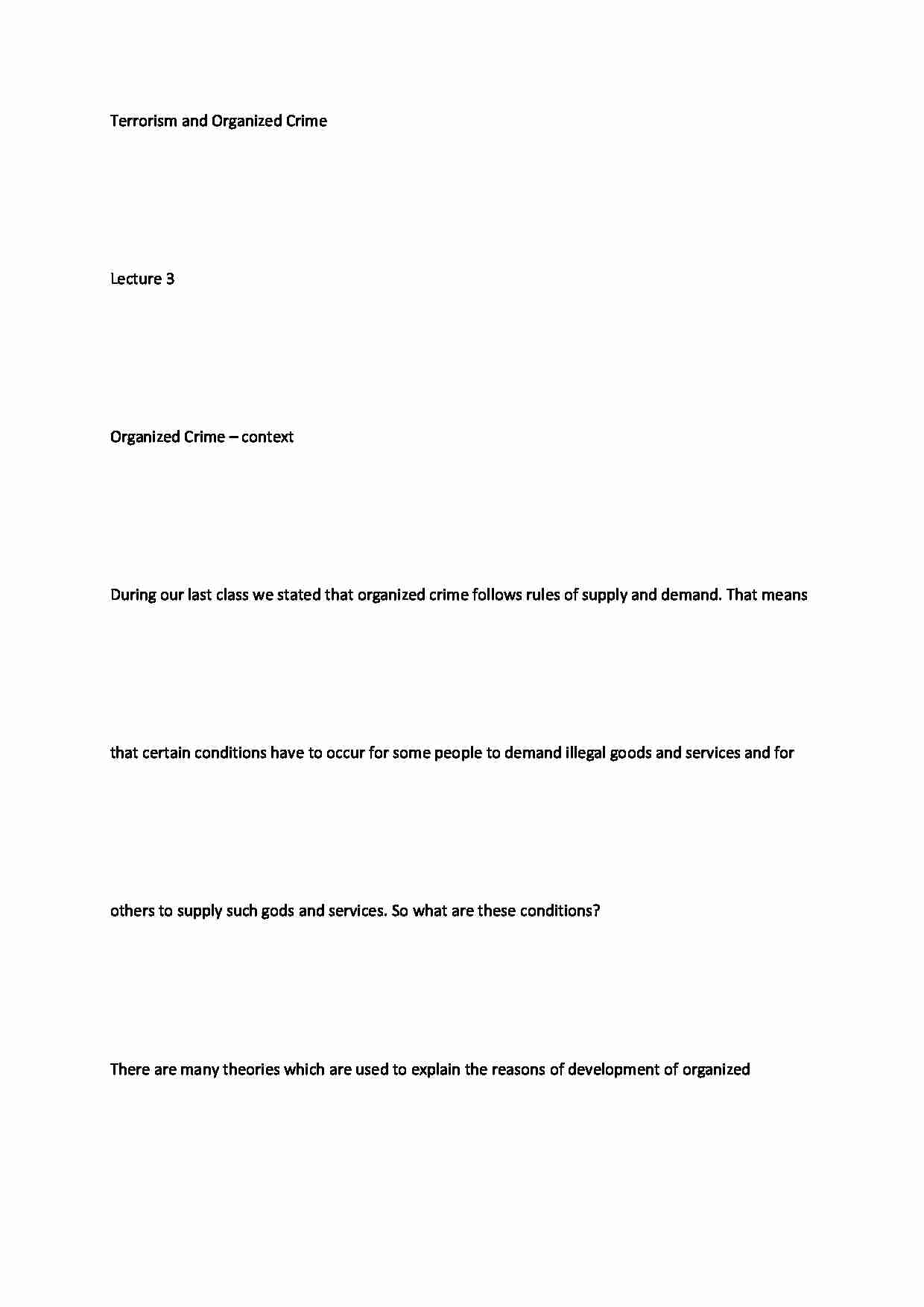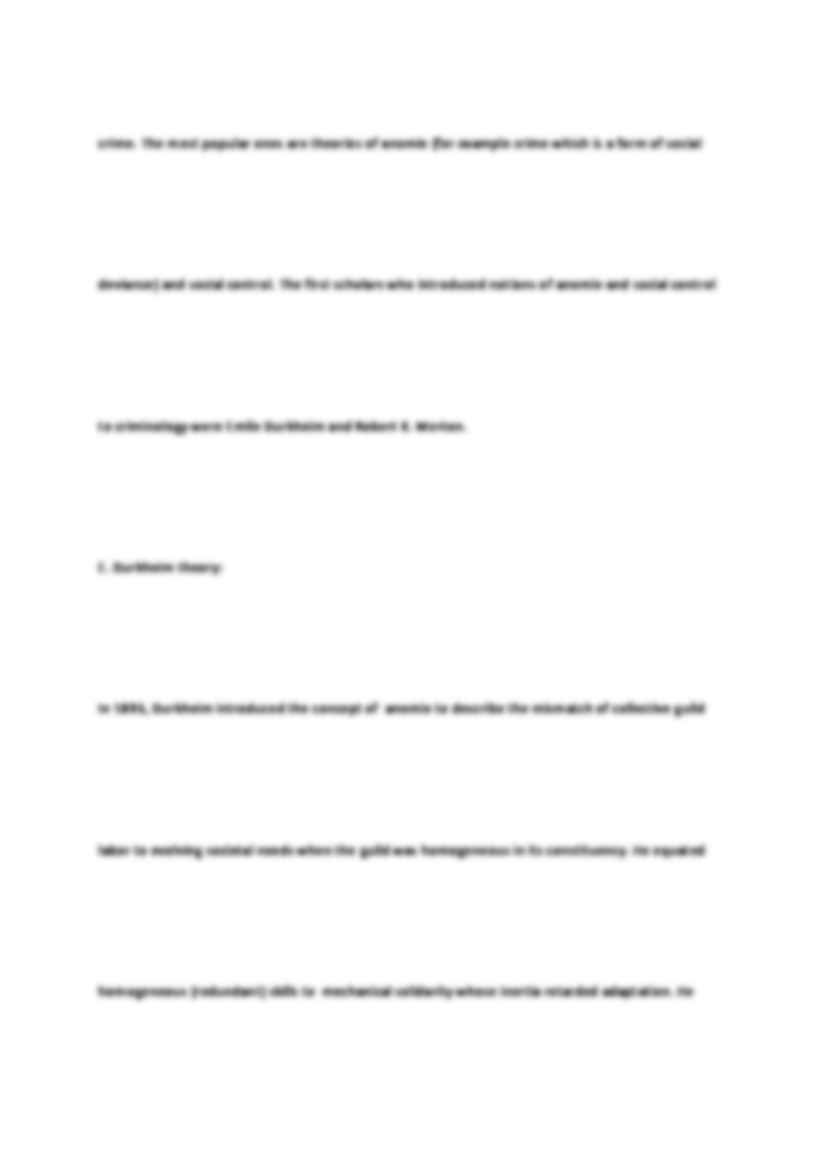To tylko jedna z 10 stron tej notatki. Zaloguj się aby zobaczyć ten dokument.
Zobacz
całą notatkę



Terrorism and Organized Crime
Lecture 3
Organized Crime - context
During our last class we stated that organized crime follows rules of supply and demand. That means that certain conditions have to occur for some people to demand illegal goods and services and for others to supply such gods and services. So what are these conditions?
There are many theories which are used to explain the reasons of development of organized crime. The most popular ones are theories of anomie (for example crime which is a form of social deviance) and social control. The first scholars who introduced notions of anomie and social control to criminology were Emile Durkheim and Robert K. Merton. E. Durkheim theory:
In 1893, Durkheim introduced the concept of anomie to describe the mismatch of collective guild labor to evolving societal needs when the guild was homogeneous in its constituency. He equated homogeneous (redundant) skills to mechanical solidarity whose inertia retarded adaptation. He contrasted this with the self-regulating behavior of a division of labor based on differences in constituency, equated to organic solidarity, whose lack of inertia made it differentially sensitive to need changes. E. Durkheim associated anomie to the influence of a lack of norms or norms that were too rigid. Such normlessness or norm-rigidity was a symptom of anomie, caused by the lack of differential adaptation that would enable norms to evolve naturally due to self regulation, either to develop norms where none existed or to change norms that had become rigid and obsolete. In simple words that means that institutions do not follow the changes that occur in the society quickly enough.
R.K. Merton Theory:
Merton postulated that an individual's response to societal expectations and the means by which the individual pursued those goals were useful in understanding deviance. He stated that anomie is the
(…)
…, Oxford University Press, New York 2004.
M. Deflem, Sociological Theory and Criminological Research: Views from Europe and the United States, Elsevier Ltd., Amsterdam 2006.
…
… acceptable means of achieving them. (e.g.: monetary success is gained through crime). Ritualists reject society's goals, but accept society's institutionalized means. Retreatists reject society's goals and the legitimate means to achieve them. Rebels reject society's goals and legitimate means to achieve them, and instead create new goals and means to replace those of society.
However debatable the theories…
… other, this may create a situation of shortage of certain goods and services, which are prohibited by official institutions but needed by some part of the society undergoing change (the example of cybercrimes, the example of black market).
Social disorganization - in every social environment there are areas which are not fully governed by social institutions because it is difficult to define which…
... zobacz całą notatkę






Komentarze użytkowników (0)